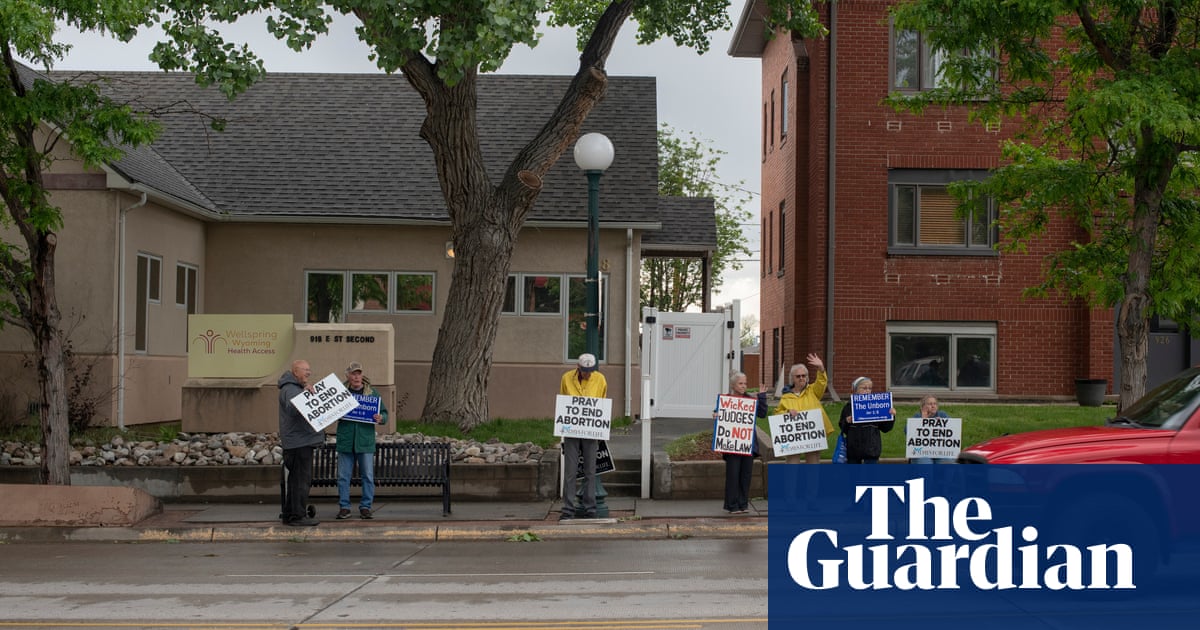Critics warn that a new executive order from Donald Trump’s administration purporting to “combat antisemitism”, and a corresponding fact sheet suggesting deporting international students who protest Israel, could chill political speech on campuses.
The fact sheet released before Trump signed the order on Wednesday quoted the president as saying: “To all the resident aliens who joined in the pro-jihadist protests, we put you on notice: come 2025, we will find you, and we will deport you. I will also quickly cancel the student visas of all Hamas sympathizers on college campuses, which have been infested with radicalism like never before.”
Although the executive order itself does not call directly for deportations, the idea of cracking down on student protesters involved with pro-Palestine efforts became a Trump 2024 campaign promise and a prominent talking point on the right in the US. Republicans have broadly sought to portray protests against Israel’s offensive in Gaza as expressions of support for Hamas, and have called to punish universities that don’t quash them.
The approach dovetails closely with Project Esther, a rightwing blueprint to target the pro-Palestinian movement, along with other calls from the right. Days after Hamas’s 7 October 2023 attack that sparked Israel’s retaliatory campaign in Gaza, Marco Rubio – then a US senator, now the secretary of state – urged former secretary of state Antony Blinken to revoke the visas of students who protested Israel.
In a letter to Blinken, Rubio characterized pro-Palestine protesters as “pro-Hamas” and urged the federal government to “perform a full review and coordination effort to revoke the visas of those who have endorsed or espoused Hamas’ terrorist activity”.
Critics argued that the reference to deportations in the fact sheet could violate the US constitution if implemented.
“Immigration enforcement that is predicated on protected speech is unconstitutional,” said Ben Wizner, director of the speech, privacy and technology project at the American Civil Liberties Union. “We think the order potentially will invite overreaching illegal law enforcement and immigration actions, but we’ll just have to see.”
The executive order calls for agencies to identify “all civil and criminal authorities or actions within the jurisdiction of that agency” that could possibly be deployed to combat “campus antisemitism”.
Project Esther, which was published in October by the conservative Heritage Foundation, lays out a strategy for cracking down on civil society groups that support Palestinian rights – and has sparked fears of wider repression. The fact sheet published on Wednesday aligns closely with language found in the document.
Neither the Heritage Foundation nor a White House spokesperson immediately responded to a request for comment on any connection between Project Esther and the executive order.
But there are numerous links between Trump and the Heritage Foundation, including James Carafano, a senior counselor to Trump who co-chairs the Heritage Foundation’s antisemitism taskforce and has praised Project Esther.
“Project Esther is a blueprint to save the US from those utilizing antisemitism to destroy it,” wrote Carafano in a 30 December 2024 op-ed in the Washington Examiner. “The key to combatting today’s antisemitism is recognizing the ecosystem in which it thrives: Politically and financially powerful funders support a network of organizations that recruit activist followers that commit the antisemitic activities we see every day, including marches, campus protests, vandalism, riots and violence.”
Under the auspices of combatting antisemitism, Project Esther lays out a wishlist of policies to root out groups and activists it claims without evidence to be providing support for Hamas. Among others, it identifies as targets the non-profit organizations Jewish Voice for Peace and Students for Justice in Palestine.
after newsletter promotion
The document explicitly calls for non-US citizen members of groups involved in allegedly “Hamas-supporting organizations” to be deported.
“There are students who participate in this activism as non-citizens, so there’s a very clear threat to them,” said Benjamin Kersten, a graduate student at UCLA and a member of Jewish Voice for Peace. “And then there’s also this general fear and repression that that plays into, which is ongoing in these various attempts to dismantle the Palestine solidarity movement.”
Project Esther makes no mention of far-right antisemitism, despite the rising prominence of neo-Nazi and white nationalist groups in the US, and Heritage’s promise to deploy “all available resources to combat the scourge of antisemitism in the United States”. Some of the groups identified by the Heritage Foundation as partner organizations have distanced themselves from the project.
Project Esther’s other aims include the purging of curricula, the firing of teachers and professors, and the denial of permits for protests and demonstrations coordinated by such organizations. The document, which calls for a “public–private partnership when a willing administration occupies the White House”, also calls for the use of racketeering charges – historically used to prosecute organized crime networks – to “exploit” these groups’ “vulnerabilities”.
Advocates for Palestinian rights are also bracing themselves for the resurrection of legislation passed in the House of Representatives last year which would give the secretary of the treasury the discretion to strip non-profits it deems to support terrorism of their tax-exempt status. It received widespread condemnation from the non-profit sector, which raised alarms that it could be used to punish Trump’s political opponents.
The bill, which passed with the support of 15 Democratic Congress members, stalled in the Senate. With Congress now controlled by Republicans, it is likelier to pass this session if reintroduced.

 German (DE)
German (DE)  English (US)
English (US)  Spanish (ES)
Spanish (ES)  French (FR)
French (FR)  Hindi (IN)
Hindi (IN)  Italian (IT)
Italian (IT)  Russian (RU)
Russian (RU)  3 hours ago
3 hours ago
























Comments